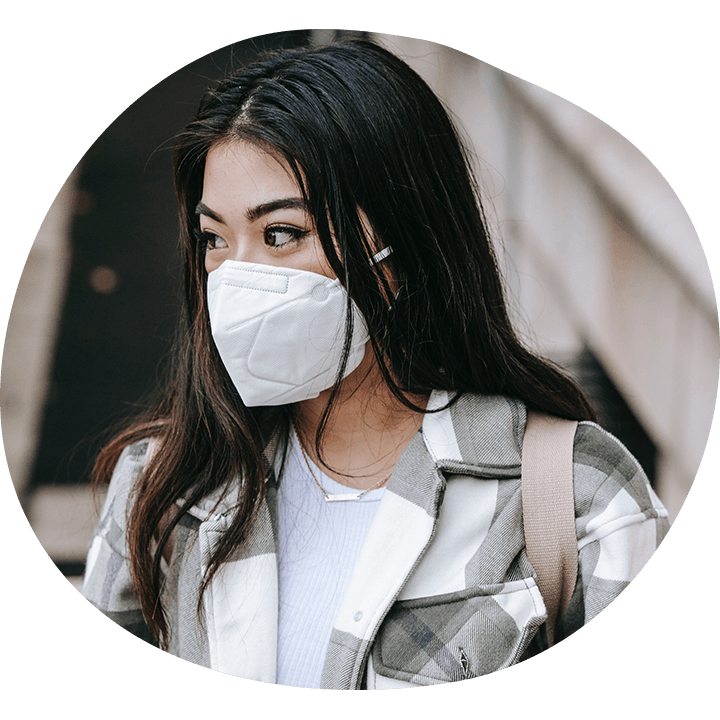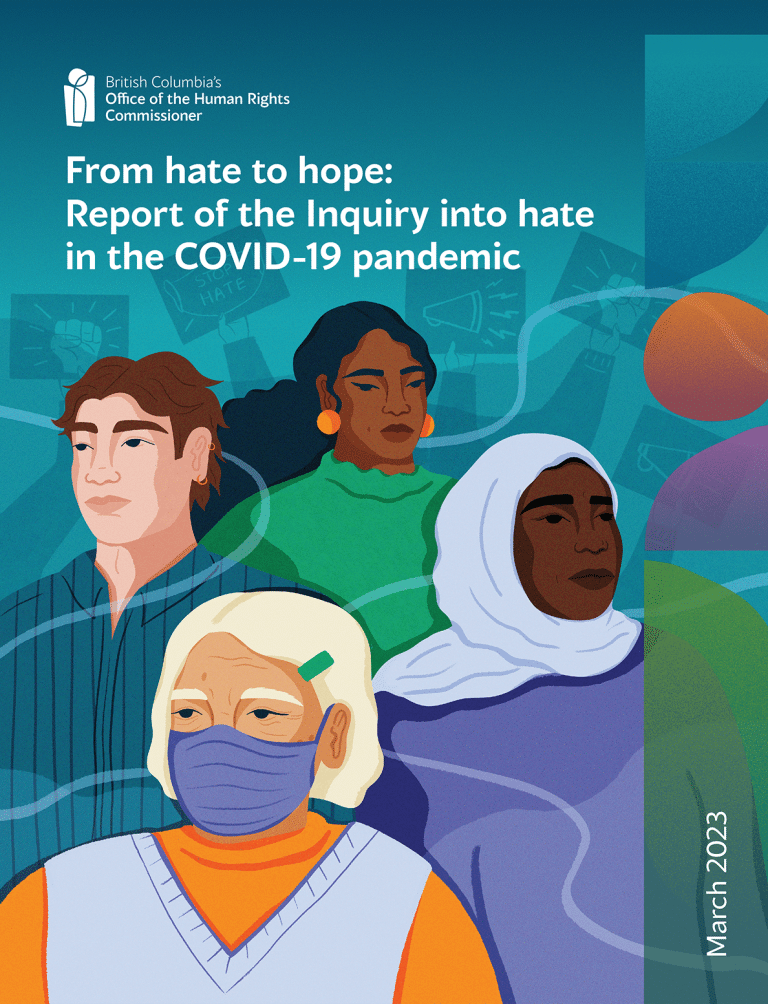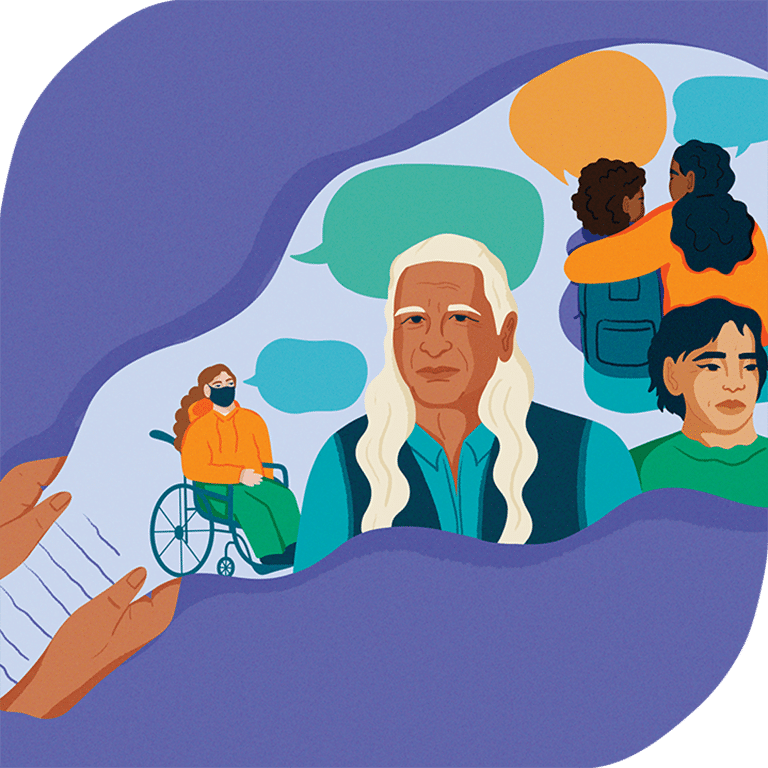Disclaimer:
This summary highlights key learnings from Section 1 of the report. Download our full report (PDF, 23MB) for more information and details. You may also click on a heading below to open up that section of the PDF report.
The COVID-19 pandemic has been a time of loss and fear. People have experienced stress and anxiety. This led to increases in hate towards certain people and groups. B.C.’s Human Rights Commissioner, Kasari Govender, held a public inquiry about the rise of hate during the COVID-19 pandemic.
Terms of reference
The Inquiry into hate in the COVID-19 pandemic asked:
- What caused the apparent rise of hate incidents in B.C. during the COVID-19 pandemic?
- What kinds of hate have individuals and communities in B.C. experienced during the pandemic, and how have these experiences affected them?
- How can we address, eliminate or prevent hate incidents during times of crisis or beyond?
- How effectively have public and private institutions responded to hate during the pandemic?
- How effective is our public policy and law in addressing hate?
A trauma-informed approach
BCOHRC wanted to make it safe for people and community organizations to share their stories.
- We asked for advice on how to plan the Inquiry and what kinds of questions to ask.
- We worked with community organizations so people could share their stories with someone they know and trust.
- We offered to pay for counseling for those telling their stories.
- We let people choose whether and how we shared their stories on the Inquiry website.
- We checked back with people to make sure we used their information correctly in the Inquiry report.

Key steps in Inquiry timeline
| August 2021 | Announced the Inquiry through a press release and information on our website |
| November 2021 |
|
| December 2021 | Conducted a representative poll of adults in B.C., asking questions about experiences of hate during the pandemic |
| January 2022 |
|
| June 2022 |
|
| October 2022 | Shared back with Inquiry participants what we learned and checked to make sure we got it right |
| March 2023 | Shared what we learned and what we recommend to help prevent and respond to hate, especially in times of crisis |
A snapshot of what the work involved
-
 800
800people completed the online poll
-
 7
7social media companies received orders and information requests
-
 52
52presentations by organizations
-
 2,642
2,642completed the Inquiry survey
-
 24
24information requests to every police department and RCMP detachment
-
 5
5research reports
-
 20
20written submissions
-
 46
46information requests to public bodies
-
 15
15Community Liaison Organizations supported the public survey
-
 46
46virtual hearings


Inquiry report (full)
The full Inquiry report (PDF, 23MB) is available for download. The over 400-page-long report (including appendices) details the Inquiry process, community stories, investigation results and the Commissioner’s recommendations for how we can collectively move forward.
For a quick overview, see the plain language summaries below or our executive summary, also available in multiple languages.

